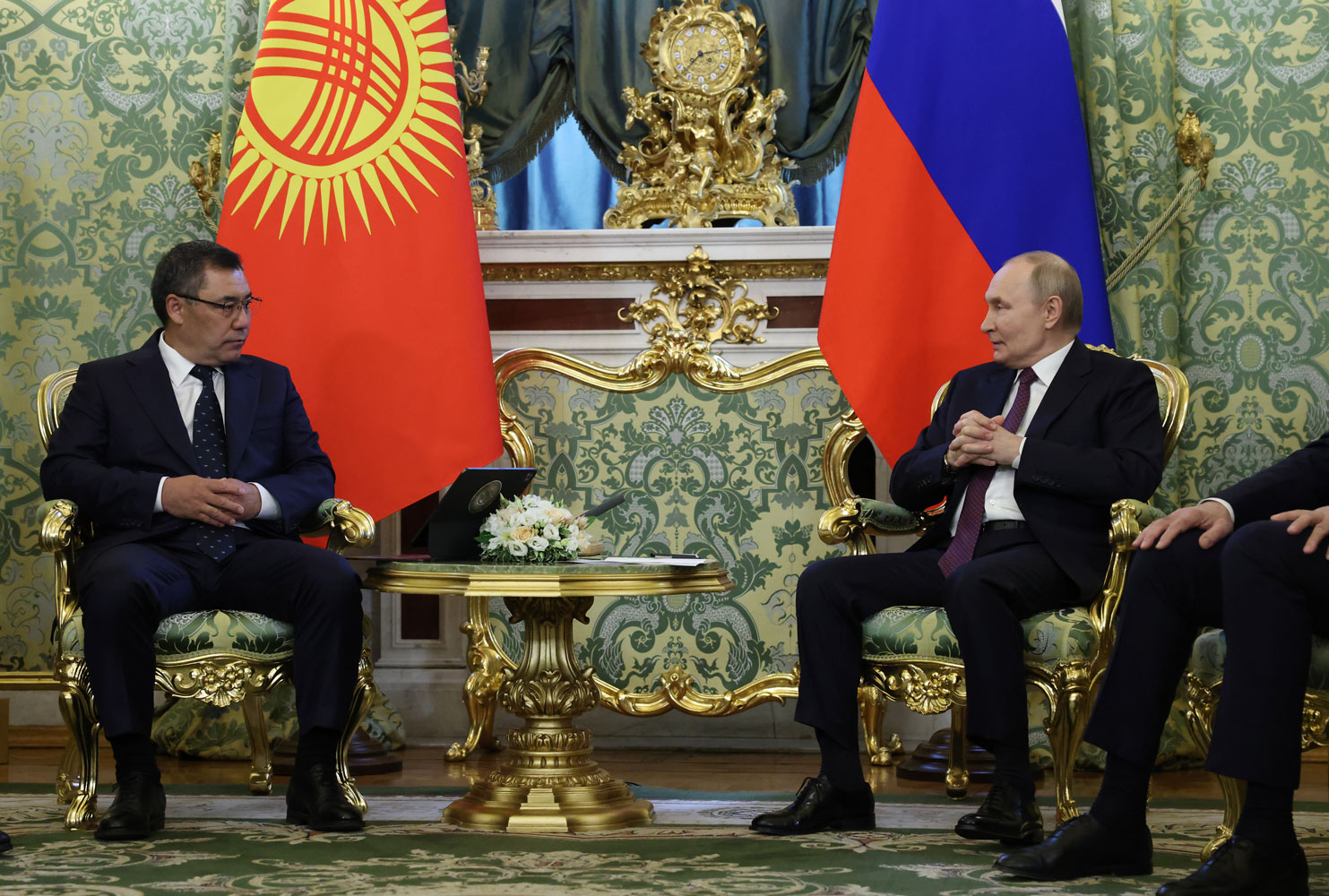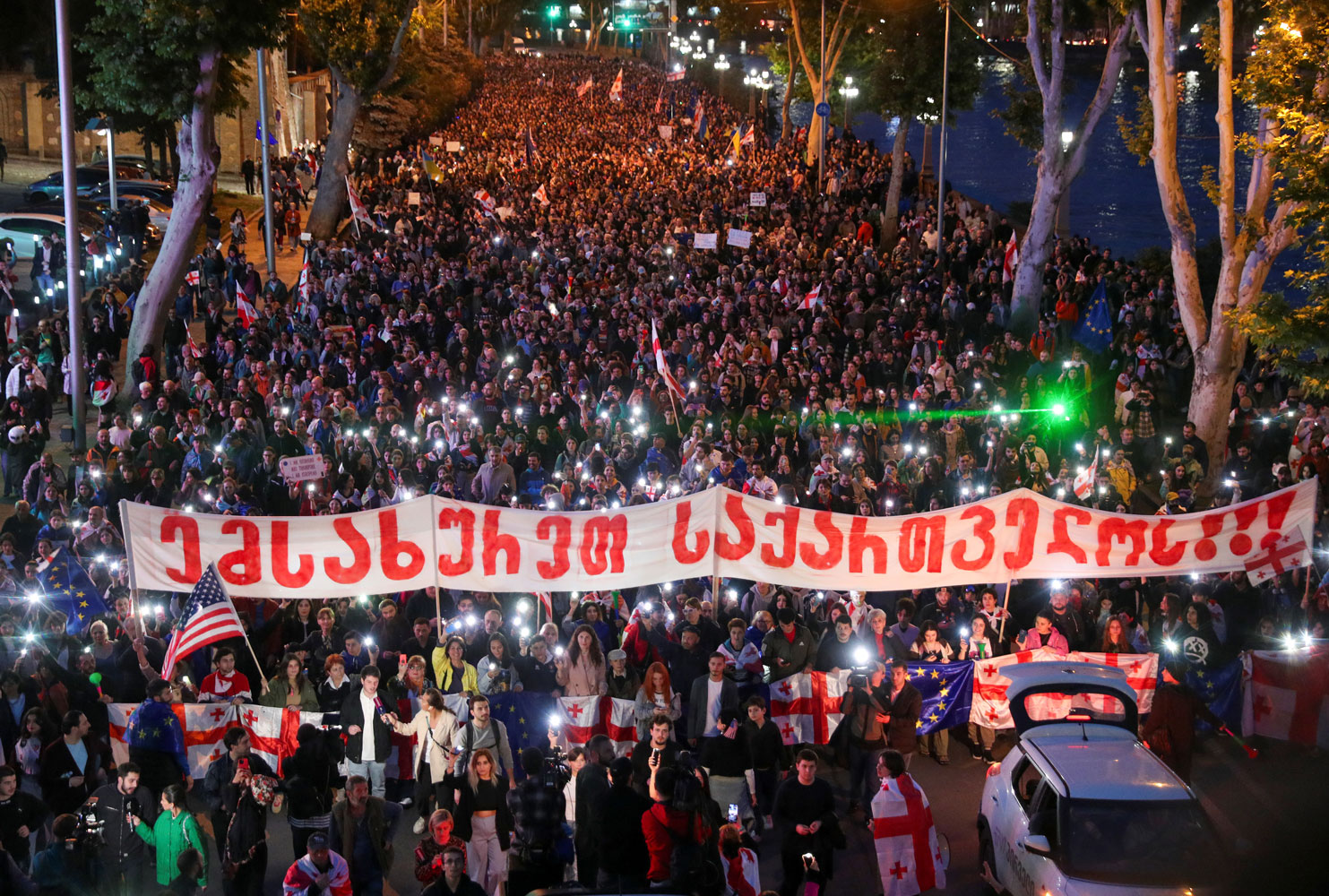Table of Contents
- Cutting civil society’s lifeline
- SUMMARY +
- INTRODUCTION +
- HISTORICAL ORIGINS The USA’s 1938 Act +
- 2004-2009 Early steps in Ethiopia and Zimbabwe +
- 2012 Russia sets the template +
- 2014-2018 Russia’s copycats +
- 2020-2022 Asia and the Americas +
- 2022-2024 Central Asia and the Caucasus +
- 2024-2025 Foreign agents laws go global +
- Trends and prospects +
- Recommendations +
- Download Report +
2022-2024 Central Asia and the Caucasus
In recent years, several former Soviet states have taken inspiration from Russia to introduce foreign agents laws.
CSOs in Kazakhstan have been required to submit reports on their foreign funding to the government since 2016. However, in March 2023, the government adopted an order stating it would publish this information. The State Revenue Committee published a foreign funding register listing 240 CSOs and individuals that receive foreign support. While no new administrative burdens were introduced beyond existing reporting requirements, the public disclosure of funding information that was previously only accessible to authorities has encouraged stigmatisation of foreign-funded organisations. Election monitoring group Echo faced bank account verification requests after appearing on the list. The situation could worsen: a February 2025 parliamentary inquiry called for the formalisation of restrictions on foreign-funded human rights and media organisations.
In neighbouring Kyrgyzstan, parliament approved a foreign representatives law in March 2024. President Sadyr Japarov signed it into law on 2 April and it took effect less than two weeks later. This law is almost identical to Russia’s template: it requires any CSO that engages in broadly defined political activity and receives foreign funding to register as a foreign representative subject to quarterly financial reporting and unannounced inspections, and to mark all publications with their foreign representative status or face heavy fines and potential liquidation.

Photo by Contributor/Getty Images
This was Kyrgyzstan’s second attempt to pass a Russian-inspired foreign agents law: the first came in 2014, but the bill was voted down after two years in legislative limbo due to fears it would affect development aid that Kyrgyzstan heavily relies on and disrupt crucial services CSOs provide. The key change that enabled the law’s eventual passage was Japarov’s rise to the presidency in October 2020. When the bill was reintroduced two years later, civic space had deteriorated dramatically, and the parliamentary vote was highly irregular, with lawmakers voting on behalf of absent colleagues.
The law had an immediate chilling effect, with organisations scaling back their activities and re-registering as commercial entities, and some proactively ceasing operations to avoid fines for noncompliance, including human rights organisation Civic Initiatives. The Open Society Foundations closed its long-established Kyrgyzstan grant-making office.

Photo by Irakli Gedenidze/Reuters via Gallo Images
Georgia’s government has faced more opposition. A 2023 attempt to enact a foreign agents law sparked mass protests on an unprecedented scale, leading the government to stall and rewrite the bill, which was eventually passed a year later. Under the Law on Transparency of Foreign Influence, CSOs and media outlets that receive over 20 per cent of their funding from abroad must register as agents of foreign influence and carry this stigmatising label on all their materials. Georgian authorities continue to claim the law merely mirrors FARA. But while FARA has been criticised by US human rights organisations for being too broad and applying to a wide variety of legitimate civil society activities, the Georgian law goes much further, conflating routine grant support with subversion rather than focusing on political lobbying for a foreign power.
Georgian civil society has vehemently opposed the bill, seeing it as a dangerous step towards authoritarianism. This law poses a threat to critical voices and raises fears of further concentration of power in the hands of the ruling elite, as has happened in Belarus and Russia.
NINO SAMKHARADZE | Georgia

GEORGIA: RESISTANCE AND REPRESSION
In Georgia, repression is testing the limits of civil society resistance. Georgian Dream, the party founded by billionaire Bidzina Ivanishvili, has governed Georgia since 2012 and has increasingly pursued pro-Russian policies despite the country’s official EU integration aspirations. Its first attempt to pass a Russian-style foreign agents law in March 2023 sparked mass protests, with tens of thousands taking to the streets of Tbilisi, the capital. Protesters, largely young people demanding closer integration with Europe, clashed with police who used teargas and water cannon. Faced with overwhelming public opposition, the government withdrew the bill just a week later.
However, it reintroduced it in April 2024, replacing its ‘agent of foreign influence’ terminology with the phrase ‘organisation pursuing the interests of a foreign power’ while maintaining all other provisions. This renewed attempt triggered some of the largest anti-government rallies in Georgia’s recent history, with crowds of up to 100,000.
Despite international pressure, including EU statements that the law was incompatible with Georgia’s candidacy and US warnings about potential sanctions, in May 2024 parliament passed the law on an 84-to-30 vote. Then President Salome Zourabichvili vetoed it, but parliament overrode her, bringing the law into force. Its passage effectively froze Georgia’s EU accession process.
Further legislative restrictions quickly followed. In March 2025, the Georgian Dream government passed a second foreign agents law, the Law on the Registration of Foreign Agents, which the authorities claim to be a verbatim translation of the USA’s FARA. Unlike the first law, this one introduces criminal liability provisions. In April 2025, parliament passed another law requiring government approval for accepting foreign grants. This has created a multi-layered framework for suppressing civil society and independent media.
Implementation has now begun in earnest. In August 2025, six prominent Georgian civil society groups, including the Civil Society Foundation (formerly Open Society Georgia Foundation), the International Society for Fair Elections and Democracy and Transparency International Georgia, received inspection letters from the Anti-Corruption Bureau.
This was the first direct targeting of critical watchdog organisations under the foreign agents law. The authorities accuse these groups of violating registration requirements and threatened criminal liability. The affected organisations have refused to comply, stating they ‘only serve the interests of our people and of Georgia’ and noting that they wouldn’t be eligible to register under the FARA standards the government claims to follow. They’ve vowed to continue their work defending rights despite what they have made clear is Russian-style persecution.